2024 Summit Faculty
Jacob Abel graduated from the University of Pittsburgh School of Medicine in 2015 and from the University of Tennessee Health Science Center Pathology Residency (AP/CP) in 2019. With a long-running interest in computers, bioinformatics, and programming, he went on to complete combined fellowships in Pathology Informatics and Molecular Genetic Pathology at the University of Michigan in 2021. As a fellow, he conducted research on the technical assessment and validation of displays in digital pathology and assisted in the selection and validation processes of whole-slide-imaging scanners as well as the selection process for an image management system. During this time, he also fulfilled the role of managing and upgrading the next-generation sequencing pipeline. Additional projects have included the creation of dashboards for tracking COVID-19 testing and blood product inventory management, as well as the use of deep learning and image analysis in histologic and gross images. He currently works as a molecular genetic pathologist at Providence Health and Services in Portland, and his ongoing interests include semi-automated clinical trial matching for oncology patients and the use of digital pathology to improve solid tumor sequencing workflows. CLOSE
Dr. Alexanderani is a Computational Pathology fellow on the NIHT32 Pathologist Scientist track of the next-generation pathologist program at Weill Cornell Medicine. With extensive training in Clinical Informatics, Digital Pathology, Pharmacogenomics, Immunology, and Pathology residency, he possesses a broad skill set for integrating clinicopathological and genomic data using cutting-edge multimodal machine-learning techniques. Dr. Alexanderani's primary objective is patient stratification and risk identification by leveraging diverse laboratory data sources. His overarching mission is to drive advancements in personalized medicine, aiming to enhance patient care through the integration of comprehensive data analysis and precision-based approaches. CLOSE
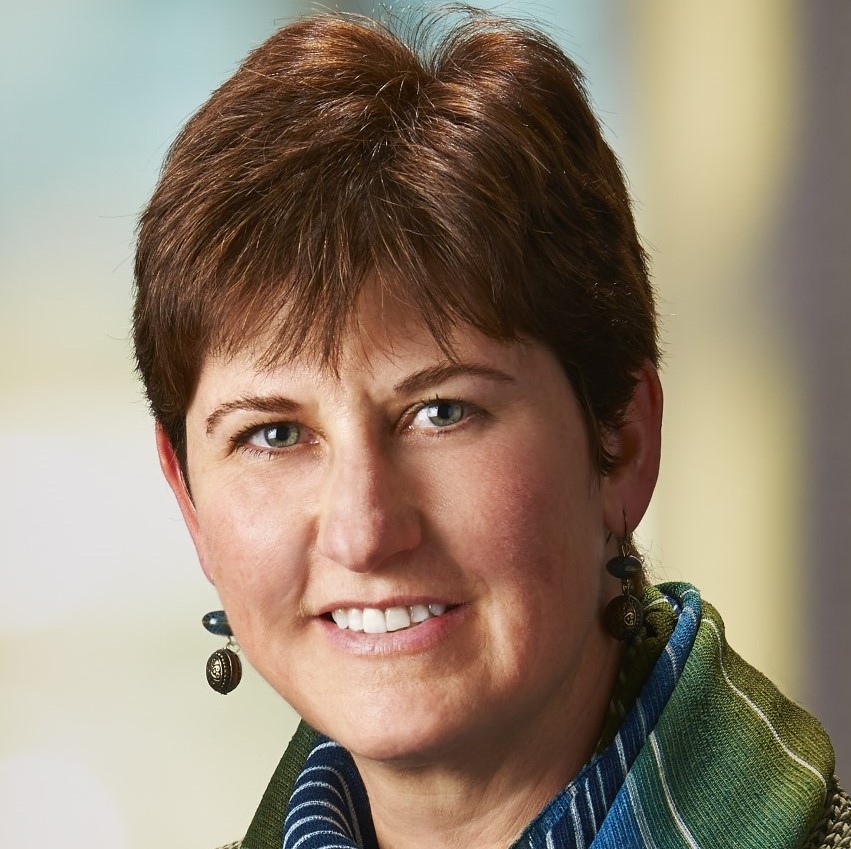
Orly Ardon, PhD, MBA
Director, Digital Pathology Operations
Department of Pathology, Memorial Sloan Kettering Cancer Center
Orly Ardon, PhD MBA is the Director of Digital Pathology Operations and an assistant member at the Department of Pathology and Laboratory Medicine at Memorial Sloan Kettering Cancer Center. She has expertise in microbiology, molecular, and digital pathology. Orly completed the degrees of BSc, MSc, and Ph.D. in Microbiology at the Hebrew University of Jerusalem, and an Executive MBA from the University of Utah. Dr Ardon serves as a board member of the Digital Pathology Association. Dr. Ardon career focuses on diagnostic test advancements and laboratory innovation. Her work in digital pathology is centered on operational aspects of digital technologies and the clinical implementation of laboratory automation. Her interests also include process improvements and healthcare economics. CLOSE
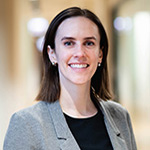
Simone Arvisais-Anhalt, MD
Director of Laboratory Medicine Informatics
Department of Pathology, University of California, San Francisco
Simone Arvisais-Anhalt, MD is the director of Laboratory Medicine Informatics, Send Out Testing, and Specimen Processing at the University of California San Francisco. Her interests include operationalizing digital health tools in health care systems, clinical informatics, clinical chemistry, laboratory medicine, and health IT policy. CLOSE
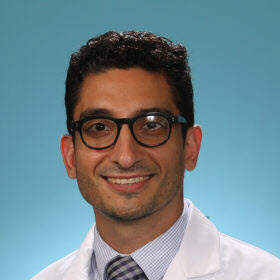
Vahid Azimi, MD
Instructor, Pathology and Immunology
Assistant Medical Director of Laboratory Information Systems
Washington University School of Medicine, St. Louis
Dr. Vahid Azimi is Instructor of Pathology and Immunology at Washington University School of Medicine in St. Louis, where he is Assistant Medical Director of Laboratory Information Systems. Dr. Azimi’s primary academic focus is improving health equity through the practice of laboratory medicine. Specifically, Dr. Azimi is interested in identifying and alleviating health disparities that arise due to biases in laboratory test use during clinical care and interpretation of laboratory test results, as well as the use of laboratory in combination with administrative data to identify and address gaps in care. CLOSE
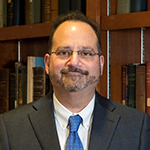
Ulysses G. J. Balis, MD
Director, Division of Pathology Informatics
Director, Pathology Informatics Fellowship Program
Professor of Pathology, Department of Pathology
University of Michigan Health System
Ulysses G. J. Balis, MD, Fellow AIMBE, is the A. James French Professor of Pathology Informatics at the University of Michigan, with additional roles as Associate Chief Medical Information Officer and Informatics Fellowship Program Director at Michigan Medicine. He serves as this year’s Pathology Informatics Summit conference director. Dr. Balis has longstanding interests in data analytics, natural language processing, digital image analysis, computational pathology, and AI-driven workflow. During his career, he has carried foundational roles in the creation of subspecialty boards for Clinical Informatics, circulating tumor cell microfluidics technology, and in the development of the original DICOM Visible Light (VL) Image Object Definition. He was elected as a Fellow of the American Institute for Medical and Biological Engineering in 2015 for his engineering contributions to laboratory instrumentation, pathology bioinformatics, and computational imaging in histology image search and analysis algorithms. His division is currently deploying all-digital primary diagnostic workflow in support of anatomic pathology, with the development of an associated computational pathology laboratory section. CLOSE
Dr. Brown is the Associate Director of the Histocompatibility Testing Laboratory at the Hospital of the University of Pennsylvania, and an Associate Professor of Clinical Pathology and Laboratory Medicine at the Perelman School of Medicine. Dr. Brown trained in basic immunology research before performing a clinical fellowship in Histocompatibility at the University of Chicago. He joined the faculty at Penn in 2019 where he nurtured an burgeoning interest in informatics. He enjoys combining his old love of immunology with his new love of informatics to solve complex problems in clinical laboratory management, as well as engaging in research on organ transplantation. Dr. Brown is also active in leadership roles of national and international organizations for histocompatibility and transplantation. CLOSE
Juan C. Caicedo is an Assistant Professor and Morgridge Investigator at the University of Wisconsin-Madison. His research work focuses on the use of deep learning and machine learning to analyze microscopy images and to combine it with other biological data. Previously, he was a Schmidt Fellow and Principal Investigator at the Broad Institute of MIT and Harvard. Before focusing on computational biology, Juan was focused on machine learning and computer vision research and worked as an intern at Queen Mary University of London, Microsoft Research, and Google Research. As a postdoctoral researcher at the University of Illinois at Urbana-Champaign he developed deep reinforcement learning methods for object detection, and later at the Broad Institute he investigated generalizable strategies for cell segmentation. CLOSE
Scott Campbell, PhD, MBA is a tenured, associate professor in the Department of Pathology and Microbiology at the University of Nebraska Medical Center (UNMC) in Omaha, Nebraska, USA. He is also the Director of Informatics for the Nebraska Public Health Laboratory and the Director of Research, Education, Administration and Development for Health Informatics Core for UNMC. Dr. Campbell specializes in clinical informatics with special emphasis in cancer pathology and microbiology. The development of SNOMED CT concept expressions for use in cancer synoptic reporting which includes biomarker and next generation sequencing data comprises significant aspects of Dr. Campbell’s research efforts. He currently serves as the Chair of the Cancer Synoptic Reporting Working Group for SNOMED International which is creating the necessary knowledge representation and concepts for the SNOMED CT international release for use in structured cancer reporting. He is a certified SNOMED CT author and is funded by the US Centers for Disease Control to continue development of SNOMED CT content for cancer reporting. He serves on the College of American Pathologists (CAP) Informatics committee and advised the CAP PERT committee. In addition to cancer reporting, Dr. Campbell is actively involved with the US Food and Drug Administration’s SHIELD data interoperability effort. CLOSE

Srikar Chamala, PhD
Director, Center for Pathology Informatics and Data Science
Associate Professor of Clinical Pathology, Keck School of Medicine of USC
Children's Hospital of Los Angeles
Dr. Srikar Chamala is an Associate Professor of Clinical Pathology at the Keck School of Medicine of University of Southern California (USC), Director of the Center for Pathology Informatics and Data Science at Children's Hospital Los Angeles (CHLA), and Associate Program Director for the Clinical Informatics Fellowship program at CHLA. He oversees the development, implementation, and maintenance of advanced Pathology Informatics solutions across major pathology divisions including clinical, anatomic, molecular pathology, transfusion medicine, and biorepository. Dr. Chamala's integration of sophisticated informatics practices enhance diagnostic and research methodologies, elevating healthcare delivery and scientific discovery standards. Dr. Chamala is passionate about leading institutional, national, and international initiatives, training pathologists, healthcare professionals, and researchers in pathology/clinical informatics and precision genomic medicine. His leadership has resulted in significant funding acquisition and the development of translational biomedical informatics research in AI, genomics, and clinical data interoperability standards. CLOSE

Weijie Chen, PhD
Research Physicist
Division of Imaging, Diagnostics, and Software Reliability
US Food and Drug Administration
Weijie Chen, PhD, is a research physicist in the Division of Imaging, Diagnostics, and Software Reliability, Office of Science and Engineering Laboratories (OSEL) at the Center for Devices and Radiological Health, U.S. Food and Drug Administration. He received his PhD from the University of Chicago in Medical Physics. At the FDA, he serves as the Program Coordinator of OSEL’s Digital Pathology Research Program. He conducts research and regulatory consults in the areas of artificial intelligence and machine learning devices in radiology and pathology applications and statistical methods in medical imaging. He has published more than 45 journal articles, 40 proceedings papers, and three book chapters. He is a Fellow of SPIE and an associate editor for the Journal of Medical Imaging. CLOSE
For more than 2 decades, Lisa-Jean Clifford has been a noteworthy leader in the high-tech healthcare solutions space. Lisa-Jean’s passion for making a positive impact on the lives of patients through technology can be traced back to her tenure at McKesson and IDX, now GE Healthcare, where she served in vital business development and marketing roles and to Psyche Systems, an LIS solution provider, where she was the CEO for eleven years. Now, recognized as an industry expert, she actively participates in numerous boards including the Association of Pathology Informatics and MLO’s Editorial Advisory Board. She is widely published in many top laboratory publications and noteworthy news sources, such as Forbes, CAP Today, Medical Laboratory Observer, and Health Data Management. Also, she is a highly sought-after speaker and focuses on delivering valuable content in critical areas such as lab automation including software and interoperability, digital pathology, AI in pathology, lab informatics, oncology, and women’s health. Lisa-Jean’s success can be attributed to her perseverance, integrity, high regard for ethics, and desire to continue to learn, grow, and move technology solutions in a forward direction for healthcare. Her collaboration with industry partners, customers, colleagues, and competitors, combined with her commitment to exceptional customer relationships, is what distinguishes her drive to foster a win-win for the healthcare industry as a whole. CLOSE
Dr. Chris Garcia is the Medical Director in the Division of Computational Pathology and Artificial Intelligence at the Mayo Clinic. He is a pathologist (AP/CP) with subspecialty training in Pathology Informatics. He has over 10 years experience in working in industry (Philips Digital Pathology Solutions), for reference laboratories (Labcorp as a medical director and strategic director) and academic medicine (currently at the Mayo Clinic). He is actively involved in the digital pathology and pathology informatics communities. He currently focuses on developing and integrating AI/ML solutions into clinical operations and practice in Laboratory Medicine and Pathology. CLOSE
Dr. Mohiedean (“Mohi”) Ghofrani is a board-certified Anatomic and Clinical Pathologist, Cytopathologist, and Clinical Informaticist. As an Epic-accredited Pathologist Builder, he played a leading role in the successful implementation of Beaker AP at PeaceHealth, where he practices surgical pathology and cytopathology. Dr. Ghofrani also serves as PeaceHealth’s System Laboratory Medical Director and chairs its Laboratory Stewardship Committee, two roles that deeply involve optimizing clinical and laboratory workflows related to Beaker and other Epic modules. He serves on the Laboratory’s CareConnect Decision Team that reviews and prioritizes Beaker optimization requests. Dr. Ghofrani is a Trustee of the American Board of Pathology, chairs its Anatomic Pathology Test Development and Advisory Committee and is a member of the American Board of Preventive Medicine Clinical Informatics Sub-board that develops the Clinical Informatics Board Exam. He has served as President of the Washington State Society of Pathologists and President of the Oregon Pathologists Association. He has published and presented on a variety of topics in cytopathology, surgical pathology, clinical informatics, and laboratory stewardship. In his free time, Dr. Ghofrani enjoys developing software. As an Apple Developer, he developed 3 free pathology-related apps for iOS. During his pathology residency, he was a two-time winner of the CAP Foundation Informatics Award and was funded by the Universities Associated for Research and Education in Pathology to develop a web-based educational resource for immunohistochemistry. The latter led him to develop a publicly available website with a variety of pathology resources, including web apps to look up ICD and CPT codes, a CDS tool to assist in management of Pap and HPV results, and demo versions of an online gynecologic/breast pathology atlas and the immunohistochemistry web app. CLOSE

John Groth, MD
Director of Informatics, Innovation and Technology
Department of Pathology
NorthShore University Health System
John Groth, M.D., is a pathologist at NorthShore University HealthSystem, where he is currently the director of informatics, innovation and technology and leading the efforts of a transition to a digital workflow with the incorporation of artificial intelligence, for primary anatomic pathology clinical work and establishing a pathology clinic. He completed his undergraduate studies in chemistry at the University of Virginia and medical school studies at the University of Illinois at Chicago. He completed his anatomic and clinical pathology residency and subsequent fellowships in general surgical pathology with interests in digital pathology, education, gynecologic pathology, laboratory information systems, patient and pathologist safety, and quality, as well as a cytopathology fellowship, from the University of Illinois at Chicago. He is board-certified in anatomic, clinical and cytopathology and is seeking board certification in clinical informatics via the practice pathway. He is currently: a member of the Digital Pathology Association's Regulatory & Standards Task Force, a member of the American Society of Clinical Pathology's Patient Champions Committee, a member of the NorthShore University HealthSystem Digital Health Committee, vice president of the Illinois Society of Cytotechnology, and treasurer of the Chicago Pathology Society. Dr. Groth has been recognized for his academic, educational, mentorship and scholarly efforts and is passionate about the betterment of patient care and pathology practice for improved outcomes. CLOSE
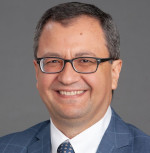
Metin N. Gurcan, PhD
Senior Associate Dean for Artificial Intelligence
Director, Center for Artificial Intelligence Research
Wake Forest University School of Medicine
Dr. Metin Gurcan is the founding Director of the Center for Artificial Intelligence Research, Professor of Internal Medicine, Pathology, and Biomedical Engineering at Wake Forest University School of Medicine, and Director of the Clinical Image Analysis Lab (http://tsi.wakehealth.edu/CIALab/). Previously, he was the founding director of the Center for Biomedical Informatics at Wake Forest University School of Medicine. Dr. Gurcan is an internationally recognized researcher and educator in the fields of medical image analysis, artificial intelligence, and biomedical informatics. His research has been supported by NIH NCATS, NCI, NIDCD, NHLBI, NBIB, NIAID, NLM, and DOD, as well as awards from several nonprofit organizations. He is the author of over 200 peer-reviewed publications and book chapters and was awarded eight patents for his inventions in medical artificial intelligence. Dr. Gurcan received his BSc. and Ph.D. degrees in Electrical and Electronics Engineering from Bilkent University, Turkey, and his MSc. Degree in Digital Systems Engineering from the University of Manchester Institute of Science and Technology, England. Dr. Gurcan is the recipient of several awards, including the British Foreign and Commonwealth Organization Award, NCI caBIG Embodying the Vision Award, NIH Exceptional, Unconventional Research Enabling Knowledge Acceleration (EUREKA) Award, Children’s Neuroblastoma Cancer Foundation Young Investigator Award, The OSU Cancer Center REAP Award, and Pelotonia Idea Award. He is a Fellow of SPIE and a senior member of IEEE and AMIA. In addition to his organizational leadership, he provides professional leadership within multiple organizations. He co-chaired the SPIE Medical Imaging Symposium between 2019-2022. He serves on the editorial boards of the Journal of Pathology Informatics, BJR | Artificial Intelligence, and SPIE Journal of Medical Imaging. He has been organizing the Pathology Informatics Histopathological Image Analysis (HIMA) workshop since 2013. CLOSE
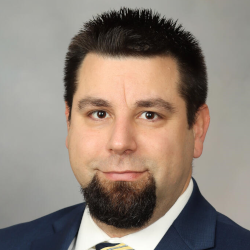
Steven N. Hart, PhD
Associate Professor of Biomedical Informatics
Division of Computational Pathology and AI
Mayo College of Medicine
Dr. Steven N. Hart is a seasoned bioinformatics expert with a proven track record of leveraging scientific computing technologies to drive innovation in healthcare. As the architect behind GenomeGPS, the primary DNA sequencing workflow at Mayo Clinic, he demonstrated his exceptional skills in building complex technologies and managing large-scale sequencing projects. Dr. Hart is a Google Cloud Professional Certified Architect, highlighting his expertise in cloud computing and data management. He applied this knowledge to transform the genomics data processing landscape at Mayo Clinic, where he served as the Associate Director of Bioinformatics. His leadership in the Clinical Genome Sequencing Laboratory has propelled the integration of cutting-edge research into clinical practice. An accomplished researcher, Dr. Hart has authored over 100 peer-reviewed papers in high-impact journals, underscoring his significant contributions to the field of bioinformatics. He excels in cancer genomics, inherited cancer risk, and AI in digital pathology. His AI algorithms are directed toward minimizing unnecessary tests and identifying those who would benefit from genetic predisposition testing. With a patient-centric approach, Dr. Hart is at the forefront of bringing new high-throughput technologies into clinical practice. His work in AI, ML, and cloud computing is shaping the future of digital healthcare, making him an ideal candidate for leadership roles in healthcare informatics. CLOSE
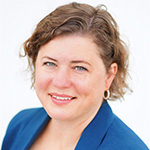
Shannon Haymond, PhD
Vice Chair, Computational Pathology
Ann & Robert H. Lurie Children's Hospital of Chicago
Dr. Shannon Haymond is Vice Chair for Computational Pathology and Director for Clinical Mass Spectrometry at Ann & Robert H. Lurie Children’s Hospital of Chicago. She is an Associate Professor of Pathology at Northwestern University Feinberg School of Medicine. Dr. Haymond is the Immediate Past-President of ADLM (formerly AACC). Dr. Haymond’s computational pathology efforts are aimed at building the capacity for advanced data analytics in her department through innovations in infrastructure, education, and research to facilitate data-informed decision-making for clinical care, operations, and quality assurance. She completed a Master of Science in Predictive Analytics from Northwestern University. CLOSE
Daniel Herman is a physician-scientist working at the intersection of data science, laboratory medicine, and clinical information systems. He completed his MD and PhD degrees at Harvard Medical School and trained in Clinical Pathology at the University of Washington. He is now an Assistant Professor at the University of Pennsylvania, where he is a practicing clinical pathologist and biomedical informatics researcher. Dr. Herman directs one of clinical chemistry laboratories at the Hospital of the University of Pennsylvania. His research group focuses on leveraging electronic health record data to improve screening for underdiagnosed diseases like primary aldosteronism. This includes training clinical prediction models; upstream computational method development to learn more interpretable, fair, and transferable models; and downstream evaluation of model-triggered decision support in observational and pragmatic trials. CLOSE
Noah Hoffman, MD, PhD, is an Associate Professor at the University of Washington and Head of the Informatics Division in the Department of Laboratory Medicine and Pathology. He also serves as the Specialty CMIO for Laboratory and Pathology services for UW Medicine. Dr. Hoffman has interests in software development to meet the operational and analytical needs of the clinical laboratory, laboratory data analytics, bioinformatics, and clinical and operational applications of AI. As the Co-director of the NGS Analytics Laboratory, Dr. Hoffman helps to supervise the development of analytical pipelines and scientific computing infrastructure supporting clinical assays. His research interests include the development and application of bioinformatic tools to perform nucleic acid sequence-based identification of microbiota in both basic research and clinical settings, including studies of the human microbiome. CLOSE
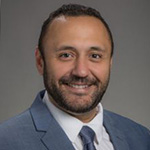
Kareem Hosny, MD, MPH
Assistant Professor, Head of Digital Pathology
Medical Director of Anatomical Pathology Informatics Division
University of Washington
Kareem Hosny, MD, MPH is an assistant professor and director of the Anatomical Pathology Informatics Division in the Department of Laboratory Medicine and Pathology. He also serves as the head of Digital Pathology for the Department. Dr. Hosny’s clinical and research interests include the clinical applications of machine learning, digital pathology, whole-slide-imaging technology, clinical decision support, and enterprise workflow optimization. As the head of Digital Pathology for the Department, Dr. Hosny is engaged in the supervision and implementation of the digital pathology initiative aimed to digitalizing the anatomical pathology service for the clinical, educational, and research purposes. The applications of Dr. Hosny’s clinical and research interests involve the whole spectrum of bioinformatics, pathology informatics, clinical informatics, and public health informatics. In addition, he was appointed as the chairman of Diversity, Equity, and Inclusion (DEI) at the Association of Pathology Informatics (API) and member of various academic DEI committees nationally and internationally. Through these roles, he obtains a very peculiar research interest in unraveling DEI gaps and Health Disparities in Artificial Intelligence Models Dr. Hosny received his MD degree from Cairo University, Egypt. He earned his MPH degree from Emory University in Atlanta/Georgia, where he studied public health informatics. He finished his residency in both Anatomical Pathology and Clinical Pathology(AP/CP) at the Hospital of University of Pennsylvania (HUP). CLOSE
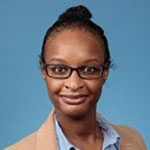
Assistant Clinical Professor, Pathology and Lab Medicine
UCLA David Geffen School of Medicine
Khalda A. Ibrahim, MD is an Assistant Clinical Professor in the Department of Pathology and Laboratory Medicine at the University of California, Los Angeles, with subspecialty training in Clinical Informatics and Transfusion Medicine. Dr. Ibrahim is a laboratory medicine informaticist and also serves as a physician informaticist for UCLA Health Information Technology. Her clinical and research interests include operational uses of machine learning models and leveraging informatics in service of historically underserved patient populations. CLOSE
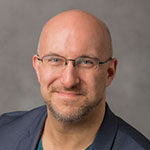
Assistant Director, Cell and Gene Therapy Laboratory
Children's Hospital of Philadelphia
Dr. Stephan Kadauke is a licensed physician with expertise in Clinical Pathology, Transfusion Medicine, Cell Therapy, and Clinical Informatics. He received his Ph.D. and M.D. from the University of Pennsylvania's Perelman School of Medicine, and completed his residency in Clinical Pathology at the Massachusetts General Hospital. He has served as a Transfusion Medicine fellow at Harvard Medical School, and is currently an Assistant Professor of Clinical Pathology and Laboratory Medicine at the University of Pennsylvania School of Medicine. Dr. Kadauke is the Associate Director of the Cell and Gene Therapy Laboratory (CGTL) at the Children's Hospital of Philadelphia (CHOP). The CGTL is a cGMP facility embedded into the hospital that performs various procedures to process cell therapies and is the sole provider of cellular therapies at CHOP. Dr. Kadauke is involved in 50+ active investigator- and industry-sponsored cell therapy clinical trials exploring hemoglobin gene therapies, chimeric antigen receptor (CAR) T cells, hematopoietic stem cell (HSC) transplants, and virus-specific cytotoxic T cells. He also serves as the Associate Director of the Penn/CHOP Cell Therapy Fellowship program. In addition, Dr. Kadauke serves as Attending physician on the Apheresis service, where he treats patients with sickle cell disease and various autoimmune and neurological diseases. He also supervises cell collections for patients who require stem cell transplantation or other cellular immunotherapies. In addition to his clinical work, Dr. Kadauke is the Medical Director of Cell and Gene Therapy Informatics (CGTI). CGTI is an agile team that builds systems to deliver reliable, high-quality, and timely data to Cell and Gene Therapy clinicians and researchers to help clinical decision making, improve and automate quality operations, and accelerate Cell and Gene Therapy clinical research. CGTI currently maintains 25+ separate systems, including REDCap-based clinical trial electronic data capture (EDC) systems, custom-built R packages and R/Shiny web applications, as well as machine learning-based predictive models. CLOSE
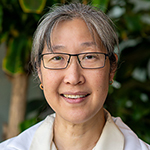
Professor, Molecular and Genomic Pathology
Henry Clay Bryant Professor of Pathology
Director, Division of Molecular and Genomic Pathology
Michigan Medicine, University of Michigan
Annette S. Kim, MD, PhD is the new Henry Clay Bryant Professor and Division Head of Diagnostic Genetics and Genomics at the University of Michigan. Annette S. Kim received her MD, PhD from Harvard in 1998. After a postdoc at Memorial Sloan Kettering Institute and several years at Merck, Dr. Kim completed residency and fellowship in Hematopathology at the University of Pennsylvania in 2008. Dr. Kim has been the Medical Director at Cooper University Hospital (2008-2009) and hematopathologist and molecular pathologist at Vanderbilt University (2009-2015) and Brigham and Women’s Hospital (2015-2023). Dr. Kim’s research program has focused on the study of hematolymphoid malignancies, including miRNAs in myelodysplastic syndromes and myeloid mutational patterns, as well as on test utilization management. At the Brigham and Women’s Hospital, Dr. Kim served as the Laboratory Director of the Heme Molecular Lab and the Translational Biomarker Core of the Center for Advanced Molecular Diagnostics. She was Co-Director of the Interpretive Genomics Program at the Dana Farber Cancer Institute, the Director of the BH3 Profiling Laboratory, and the PI of the molecular core for the Leukemia SPORE program. She has served on several national pathology committees including the College of American Pathologists Molecular Oncology and Personalized Health Care Committees, the latter as current Vice-Chair, and the Association of Molecular Pathology Board and Executive Committee as well as chairing the Hematopathology Subdivision and the Training and Education Committees. In addition, she is the vice chair of the ASH Precision Medicine committee and served on the Somatic Working Group committee and serves on a number of other national biomarker and pathology committees. She has been awarded several teaching awards and was awarded the CAP Public Service Award in 2019. CLOSE
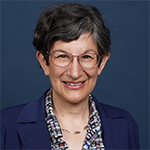
Professor of Pathology
Medical Director of Computational Pathology
University of Utah
Beatrice Knudsen, MD, PhD, embraces multidisciplinary research and has contributed her knowledge of pathology and oncogenic kinases to collaborative projects with the most talented basic scientists, epidemiologists and biostatisticians at Cedars-Sinai, and previously at the Fred Hutchinson Cancer Research Center. She is the director of the Cedars-Sinai Division of Translational Pathology. Knudsen oversaw the creation of state-of-the-art Cedars-Sinai Biobank and molecular pathology core. The new biobank is a roughly 7,000-square-foot facility on the first floor of the Steven Spielberg Building. The facility can fulfill Cedars-Sinai's dual missions of serving science and the community. CLOSE

Niklas Krumm, MD, PhD
Associate Director Informatics Division,
Co-Director NGS Analytics, Assistant Professor
University of Washington
Niklas Krumm is an MD/PhD with training in human genetics and clinical pathology. He serves as an associate director of informatics in the Department of Laboratory Medicine and Pathology at the University of Washington. His interests are in building software infrastructure that aligns with laboratory use cases, improves workflows, and creates better laboratory processes. CLOSE
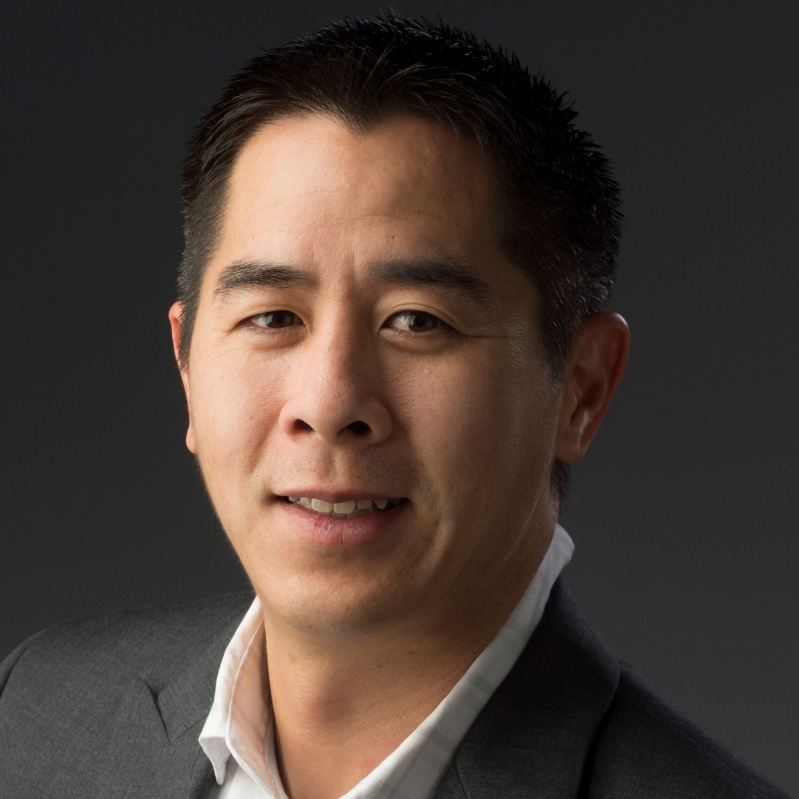
Jonathan T. C. Liu, PhD
Professor of Mechanical Engineering, Bioengineering, and Laboratory Medicine & Pathology
University of Washington
Jonathan T.C. Liu is a professor at the University of Washington, where his molecular biophotonics laboratory develops high-resolution optical-imaging devices and computational-analysis strategies for guiding treatment decisions. Dr. Liu received his BSE from Princeton and his PhD from Stanford before becoming a postdoc and instructor in the Molecular Imaging Program at Stanford. Dr. Liu is a co-founder and board member of Alpenglow Biosciences Inc., which has commercialized the non-destructive 3D pathology technologies developed in his lab. Dr. Liu’s work is funded by the NCI, NIBIB, NIDDK, DoD, NSF, and various foundations. CLOSE
Dr. Zhengchun Lu is a seasoned medical professional with expertise in virology, biomedical science, and pathology. As a resident physician at Oregon Health & Science University, Dr. Lu is dedicated to pioneering research for enhanced patient care. Her diverse training background in virology spans cutting-edge diagnostic tests to B cell repertoire immunology, uniquely positioning her for impactful contributions, particularly in the context of the COVID-19 pandemic. During her first year of residency, Dr. Lu conducted award-winning research correlating wastewater SARS-CoV-2 signals with positivity rates in underserved communities. This project, honored with the 1st prize for the Health Access and Equity Division Outstanding Research Award at the 2022 Annual AACC meeting, significantly broadened her perspective from the lab to the community. Dr. Lu is also an expert in artificial intelligence (AI), serving as the Principal Investigator for the project "Development and clinical validation of artificial intelligence-assisted flow cytometry diagnosis in leukemia, lymphoma, and minimal residual disease testing." This project, funded by The Society of ’67, the Association of Pathology Chairs for Pathology Trainee Project Grant in Health Services Research or Education, highlights her commitment to advancing diagnostic technologies and alleviating healthcare disparities. Actively engaged in professional organizations, Dr. Lu has presented her research at numerous academic conferences, showcasing her dedication to staying at the forefront of medical advancements. CLOSE
Hung S. Luu, PharmD, MD, FCAP is the Director of Clinical Pathology at Children’s Health, a pediatric health care system in Dallas, Texas. He is Associate Professor of Pathology at UT Southwestern Medical Center. He conducts research on interoperability of laboratory data and utilizing clinical decision support to improve healthcare efficiency and patient outcomes. Dr. Luu is an active member of the College of American Pathologist and serves on the Clinical Informatics Committee. He serves on the steering committee for the Food and Drug Administration’s SHIELD Community, a multi-stakeholder initiative to improve the quality, interoperability, and portability of laboratory data. Dr. Luu was appointed to a three-year term on the Health Information Technology Advisory Council (HITAC) in 2022 and was also appointed to the Clinical Laboratory Improvement Advisory Committee (CLIAC) in 2023. CLOSE
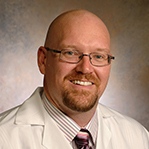
Chair, Division of Computational Pathology and Artificial Intelligence
Senior Associate Consultant, Department of Laboratory Medicine and Pathology
Mayo Clinic
Dr. David McClintock is Chair of the Division of Computational Pathology and Artificial Intelligence and a Senior Associate Consultant in the Department of Laboratory Medicine and Pathology, at the Mayo Clinic (Rochester). Current professional interests include the use of machine learning and artificial intelligence tools to improve patient care, clinical laboratory workflows, operational efficiency, and scientific discovery. He is currently the Program Committee Chair within the Association for Pathology Informatics. CLOSE

Editor-In-Chief, The Dark Report
President, The Dark Intelligence Group, Inc.
Robert L. Michel is Editor In Chief of THE DARK REPORT, an intelligence service and publication providing economic and strategic assessment of the clinical laboratory industry for senior executives and pathologists that was founded in 1995. He produces the Executive War College on Laboratory and Pathology Management, held every May. In 2006, Michel established www.DarkDaily.com. His DarkDaily e-briefings are now read each day by more than 24,000 people in 186 different countries around the world. During recent years, Mr. Michel has participated in conferences and visited laboratories in Argentina, Australia, Brazil, Canada, China, Columbia, Egypt, Germany, India, Japan, Korea, New Zealand, Saudi Arabia, South Africa, and the United Kingdom. This has provided an international perspective to his understanding of healthcare trends and developments in laboratory medicine. In 2016, he was recognized with the W.A.D Anderson Award from the University of Miami Department of Pathology, an award given annually to recognize significant contributions to anatomic pathology and laboratory medicine. He attended University of California at Los Angeles (UCLA), earning a B.A. in Economics. He is a winner of the Specialized Information Publishers Association’s prestigious “Best Investigative Reporting” Award and is listed in Marquis’ Who’s Who in Healthcare and Medicine. CLOSE
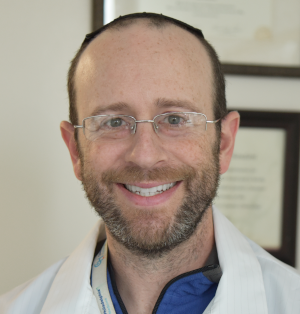
Associate Chair, Pathology Informatics and Hematology Laboratory
Children's Hospital of Philadelphia
Amrom Obstfeld MD, PhD, is the Associate Chair of Pathology Informatics as well as the Hematology Laboratory at Children’s Hospital of Philadelphia. After receiving his MD and PhD degrees from the College of Physicians and Surgeons at Columbia University, he went on to train in Clinical Pathology at the Hospital of the University of Pennsylvania. In addition to his duties within the Hematology Laboratory, Dr. Obstfeld’s clinical responsibilities include leading the development of analytic tools to aid in laboratory quality management, administration, and operation, and interfacing with other groups throughout the hospital on informatics initiatives. His research focuses on utilizing clinical and pre-clinical laboratory data sets for predicting diagnosis and prognosis using statistical and machine learning techniques. Dr. Obstfeld plays a major role in designing and implementing educational experiences for pathology trainees and faculty at the University of Pennsylvania within the areas of clinical and pathology informatics. CLOSE
Dr. Liron Pantanowitz is Chair and Professor of Pathology at the University of Pittsburgh & University of Pittsburgh Medical Center. He received his medical degree and PhD from the University of Witwatersrand in South Africa. He completed his anatomical and clinical pathology residency training at Beth Israel Deaconess Medical Center, Harvard in Boston. He subsequently completed a hematopathology fellowship at Harvard and Cytopathology fellowship at Tufts. He is also board certified by the American Board of Pathology in clinical informatics. He received his MHA from Ohio University. Dr. Pantanowitz is an Editor-in-Chief of the Journal of Pathology Informatics. He is a past president and current council member of the Association of Pathology Informatics, president of the American Society of Cytopathology, and president of the Digital Pathology Association. He is widely published in the field of pathology informatics and cytopathology. His research interests include digital pathology, artificial intelligence and non-gynecological cytopathology. CLOSE
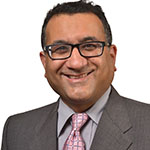
Anil Parwani, MD, PhD, MBA
Director, Pathology Informatics and Digital Pathology
Vice Chair and Director, Anatomical Pathology
The Ohio State University
Dr. Anil Parwani is a Professor of Pathology at The Ohio State University. He serves as the Vice Chair and Director of Anatomical Pathology. Dr. Parwani is also the Director of Pathology Informatics and Director of Digital Pathology. His research is focused on diagnostic and prognostic markers in bladder, prostate, and renal cell carcinoma. Dr. Parwani has expertise in the area of surgical pathology, viral vaccines and pathology informatics including biobanking, whole slide imaging, digital imaging, telepathology, image analysis, artificial intelligence and lab automation. Dr. Parwani has authored over 400 peer-reviewed articles in major scientific journals and several books and book chapters. Dr. Parwani is the Editor-in-chief of Diagnostic Pathology and Journal of Pathology Informatics. CLOSE
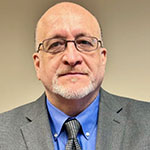
Hooman H. Rashidi, MD, MS, FCAP
Associate Dean of AI in Medicine, Executive Director of CPACE Ai Center
Executive Vice Chair of Computational Pathology
University of Pittsburgh
Dr. Rashidi is a physician scientist, inventor of several well established and validated Data Science Apps/ Machine learning Platforms (e.g. MILO Auto-ML, MILO APT, STNG, etc.) and a prolific author. He is currently the Associate Dean of AI in Medicine at the University of Pittsburgh school of medicine, Professor & Endowed Chair of Experimental Pathology Research, Executive Vice Chair of Computational Pathology and the Executive Director of CPACE (Computational Pathology & AI Center of Excellence, a joint venture of U Pitt and UPMC). In light of his extensive background and experience in the machine learning and bioinformatics fields, he continues to create innovative new tools and resources along with published best practice guidelines that improve clinical practice, research, and education. Dr. Rashidi is also a committed educator with numerous teaching awards and well-established educational Apps. His efforts in the AI-ML & digital space are internationally recognized, as evidenced by his active numerous invited talks (at numerous prestigious institutions and conferences), his various editorial (associate editor of ML for Modern Pathology & associate editor of ML for JPI) & reviewer roles in this domain, his numerous published key invited review articles & his continued national committee roles within this space. CLOSE
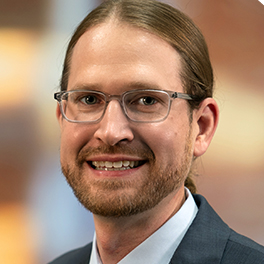
Joseph Rudolf, MD
Associate Professor
Medical Director, Automated Core Lab, ARUP Laboratories
University of Utah
Dr. Rudolf is an assistant professor in the Department of Pathology at the University of Utah. He serves as Medical Director of the Automated Core Laboratory at ARUP Laboratories, a national nonprofit and academic reference laboratory. His clinical and research interests focus on the intersection of informatics and clinical operations including clinical decision support, utilization management, and reporting and analytics. He is also passionate about clinical process improvement and initiatives to support quality and safety. Dr. Rudolf earned his medical degree (2012) from the University of Washington School of Medicine in Seattle, Washington. He completed his residency training in Clinical Pathology (2015) and fellowship in Clinical Informatics (2017) at the Massachusetts General Hospital in Boston, Massachusetts. CLOSE
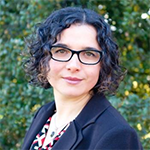
Assistant Professor of Radiology
Stanford University
Dr. Mirabela Rusu received her MS and PhD in Computational Biomedicine from University of Texas, Houston, and focused her research on the fusion of biomolecular structural data from different sources (i.e., cryo-electron microscopy and X-ray crystallography). Her postdoctoral training at Rutgers and Case Western Reserve University was focused on developing computational methods for the fusion of medical images, i.e., to register radiology or pathology images, or create population atlases for prostate cancer studies. Following postdoctoral training, Dr. Rusu joined Industry as an Image Analysis Scientist/Lead Engineer. Currently, Dr. Rusu is an Assistant Professor of Radiology, and by courtesy, Urology and Biomedical Data Science, at Stanford University, where she leads the Personalized Integrative Medicine Laboratory (http://pimed.stanford.edu). Dr. Rusu’s team focuses on developing analytic methods to improve the interpretation of radiology images by taking advantage of existing high-resolution information during training but only needing lower resolution radiology images during inference (e.g., when applied in new patients). CLOSE
Dr. Lee Schroeder is Associate Professor of Pathology at the University of Michigan where he is Associate Director of the Division of Clinical Pathology, Medical Director of Point-of-Care Testing, and Medical Director of Satellite Phlebotomy. He is also a member of the Patient-centered Laboratory Utilization Guidance Services (PLUGS) Informatics Committee and served on the College of American Pathologist Chemistry Resource Committee. Dr. Schroeder is a recent member of the World Health Organization Strategic Advisory Group of Experts on In Vitro Diagnostics (SAGE-IVD), the committee responsible for the Essential Diagnostics List, and was an author for the Lancet Commission on Diagnostics. Dr. Schroeder’s academic focus is at the interface of clinical informatics and health services research, using decision analytic approaches to understand and improve the impact of laboratory medicine. This has included analytic studies of existing health care data to establish reference intervals using indirect methods, characterize the accuracy of point-of-care testing, and predict the accuracy of SARS-CoV-2 assays in different populations using various specimen types. He conducts landscaping exercises of laboratory capacity in low- and middle-income countries and studies the performance of laboratory networks within health systems. He is currently dual-PI on an NIH project to conduct a country-level study in Ghana to create a geospatial model to optimize the tiered laboratory network for several diseases of public health importance. CLOSE
Dr. Singh is the Director of Digital Pathology and Dermatopathology at Summit Health in New Jersey. He is the founder of PathPresenter, an online digital platform that has 50,000+ users in 170+ countries and is used by multiple academic departments, private pathology groups, and organizations in the US and all over the world (pathpresenter.com/). He was previously Professor of Pathology and Dermatology at Northwell and Icahn School of Medicine at Mt. Sinai. Dr. Singh is the recipient of the “Lifetime Achievement Award” from the College of American Pathologists (CAP) for creating PathPresenter, and the “Teacher of the Year Award” at Mt. Sinai School of Medicine for 5 consecutive years. He served as the Chair of the American Society of Dermatopathology Informatics Committee, Board Member of DPA, Editorial Board of the WHO for Classification of tumors, 5th Edition. Dr. Singh currently serves on the Sulzberger Grant Committee of the AAD, Digital and Computational Pathology Committee of the CAP, Education Committee of DPA, Computational Pathology Subcommittee of the WHO. He has been nominated on the Pathologist “Power List 100” put out by the Pathologist for 2020, 2021 and 2022. Dr. Singh is also the creator and Chief Editor of the app-mydermpath, an online education resource for dermatopathology residents. He also is the Chief Editor of the print book “Surgical Pathology Reimagined”, available on Amazon. CLOSE
Michelle Stoffel, MD, PhD, is the Associate CMIO for Laboratory Medicine and Pathology at the M Health Fairview health system and an Assistant Professor in the Department of Laboratory Medicine and Pathology at the University of Minnesota. Her academic and operational focus is on bridging the practice of informatics from the lab to clinicians and patients via the electronic medical record, with additional interests in clinical and pathology informatics education. CLOSE
Mohamed Amgad Tageldin is a PGY-1 Pathology Resident at the Physician-Scientist track at Northwestern University, Feinberg School of Medicine. He is an aspiring academic pathologist working in the interdisciplinary field of Computational Pathology. He obtained his MD from Cairo University, and his PhD in Computer Science from Emory University in Atlanta, GA under the supervision of Dr. Lee A.D. Cooper. His dissertation work developed highly interpretable models to improve prognosis of invasive breast cancer, with robust validation studies. CLOSE

Hamid R. Tizhoosh, PhD
Professor of Biomedical Informatics
Department of Artificial Intelligence and Informatics
Mayo Clinic
Hamid R. Tizhoosh is a distinguished Professor of Biomedical Informatics in the Department of Artificial Intelligence and Informatics at Mayo Clinic, located in Rochester, MN, USA. He is the founder and director of the Rhazes Lab. Prior to his tenure at Mayo Clinic, Dr. Tizhoosh made significant contributions to the field while working at esteemed institutions such as the University of Toronto and Waterloo. Since 1996, Dr. Tizhoosh has dedicated his research efforts to the intersection of artificial intelligence, computer vision, and medical imaging. He has pioneered innovative algorithms for medical image filtering, segmentation, and search. One of his notable contributions is the introduction of the concept of "Opposition-based Learning." Dr. Tizhoosh's expertise extends to the realm of academia, evident through his authorship of two influential books, numerous book chapters, and a substantial body of peer-reviewed journal articles and conference papers. Dr. Tizhoosh possesses a wealth of industrial experience, coupled with over a decade of involvement in commercialization and the creation and guidance of start-ups. Since 2012, his research focus has honed in on image search within medical archives, particularly emphasizing histopathology. His expertise in this domain is underscored by the publication of more than 70 papers on image search, illuminating new pathways for research and development in the field. In summary, Dr. Tizhoosh stands as a trailblazer in the realms of Biomedical Informatics and Artificial Intelligence. His pioneering work, extensive publications, and dedication to advancing medical imaging technologies have left an indelible mark on the research community and continue to inspire future innovations in the field. CLOSE
J. Mark Tuthill, MD, completed pathology residency and informatics fellowship training at the University of Vermont College of Medicine-Fletcher Allen Health Care, and created the department’s division of pathology informatics. Dr. Tuthill is currently Division Head of Pathology Informatics at Henry Ford Health System in Detroit. Areas of interest include digital pathology implementation, Internet applications for laboratory services, laboratory information systems, business analytics, electronic health records and informatics training and education. Active in organized medicine, he is an advisor to the ASCP Annual Meeting Steering Committee; Delegate, Wayne Medical Society; Director for the API’s Pathology Informatics Summit; and Delegate for CDC’s CLIAC committee. As a charter member of the Association for Pathology Informatics, Dr. Tuthill has worked for the API from its inception serving as president, of the membership committee, education committee member, and the organization’s original planning group and currently, chair, program committee. CLOSE
Myra Wilkerson is Chair, Laboratory Medicine Service Line for Geisinger. Dr. Wilkerson is responsible for oversight of all clinical and anatomic pathology laboratory services within the health system. She joined the Geisinger team in 1999 and has helped several medical directorships over Geisinger hospital laboratories as week as the vice chair for the service line. Her subspecialty areas are cytopathology, genitourinary pathology, and laboratory informatics. Her current research interests include tissue microarrays and immunochemistry of the testicular and bladder tumors. Dr. Wilkerson recently edited and contributed four chapters to a book published by the Geisinger anatomic pathology group, the Handbook of Practical Immunohistochemistry: Frequently Asked Questions. She s one of the web authors for the companion web site to this book, www.ihcfaq.com. Dr Wilkerson is a part president of the Association of the Clinical Scientists and a past president of the Association for Pathology Informatics. She also currently serves on the Informatics Committee and the Clinical Informatics Steering Committee for the College of American Pathologist’s. She is on the editorial boards of three peer reviewed journals, the Annals of Clinical and Laboratory Science, the Archives of Pathology and Laboratory Medicine and the Journal of Pathology Informatics. Dr. Wilkerson received her undergraduate degree in Medical Technology from Marshall University, and then worked in the clinical laboratories at Charleston Area Medical Center before retuning to Marshall University to earn a Doctor of Medicine. She completed a combined anatomic and clinical pathology residency and cytopathology specialty training in the PennState Geisinger Health System. CLOSE
Dr. Mustafa Yousif is an Assistant Professor and the Director of digital Pathology at the University of Michigan in Ann Arbor, MI, USA. He received his medical degree from the University of Al-Mustansiriyah in Baghdad, Iraq. He completed his anatomical and clinical pathology residency training at Wake Forest University. He subsequently completed a Gynecologic and Breast Pathology fellowship at the University of Pittsburgh Medical Center and a Pathology Informatics fellowship at the Department of Pathology Informatics, University of Michigan. Mustafa is interested and has deep knowledge in pathology informatics and digital pathology. His research interests include digital pathology and artificial intelligence, as well as gynecologic and breast pathology. CLOSE

Inti Zlobec, PhD
Professor of Digital Pathology
Institute of Tissue Medicine and Pathology
University of Bern in Switzerland
Inti Zlobec is Professor of Digital Pathology at the Institute of Tissue Medicine and Pathology, University of Bern in Switzerland. Originally from Montreal, Canada she obtained her PhD in Experimental Pathology from McGill University, before completing a post-doctoral fellowship at the Institute of Pathology, University Hospital Basel. There, building upon her background in histopathology, tissue-based research methods and biostatistics, her research focused on discovering and validating translational biomarkers and biostatistical modelling of clinical outcomes for colorectal cancer patients. In 2011, Inti Zlobec joined the Institute of Tissue Medicine and Pathology in Bern, where she established the Translational Research Unit, a core facility for tissue “visualisation” methods and image analysis, and later modernized and led the Tissue Biobank Bern until 2022. Now, she leads an interdisciplinary research group using computational methods to study pathology images, build tools for diagnostic clinical use and gain novel biological insights into colorectal cancers by using the latest spatial (transcriptomic and protein) tissue visualisation techniques. Inti Zlobec is Chair of the European Society of Pathology Working Group for Digital & Computational Pathology, Founder and President of the Swiss Digital Pathology Consortium (SDiPath), and Executive Team member of the Center for Artificial Intelligence in Medicine (CAIM) of the University of Bern. Website: www.digitalpathologybern.com CLOSE
|